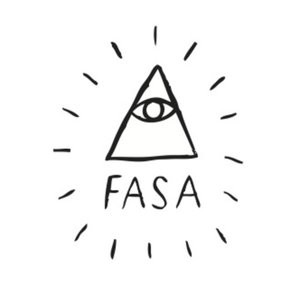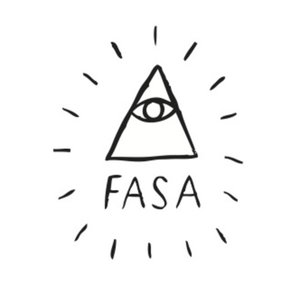
Proposed by CSU President Schubert Laforest, who was absent from the meeting due to illness, the motion would have allowed student faculty associations to appoint a representative to council if both annual general elections and byelections passed but resulted in no student filling any of the seats reserved for that faculty. This was the case after byelections in November left all Fine Arts seats empty on council.
Despite having been checked beforehand by the policy committee and discussed with the Fine Arts Student Alliance executives (some of whom attended the meeting on Wednesday), council quickly realized that the motion would be impossible to allow without violating bylaw 9.3.1 which states that vacant seats can only be filled through a byelection — a fact that left the FASA representatives unimpressed.
FASA VP clubs and services Erika Couto, who first brought the issue to light with a petition she brought to council following the November byelections, was not pleased that council shot down the proposed solution and then moved to suspend the issue indefinitely.
“We’re very angry,” she said. “This points to bigger problems within the CSU’s functioning.”
Couto also said that another byelection would have to be held to allow some Fine Arts representation on council or risk violating the CSU’s bylaws. Bylaw 6.2.1 states that council composition must consist of two representatives from each faculty.
Some councillors, such as Carlotta Longo, suggested that a byelection would be too expensive considering how little time there is left in the academic year.
After a fierce debate, council came to a motion that would allow three Fine Arts representatives to have ex-officio rights on council, which would allow them to sit in on closed sessions but not vote as council members do.
The motion will need to be voted on at the next FASA meeting before it can be accepted or declined.
Councillor Ramy Khoriaty told The Concordian that while the initial solution Laforest brought to council wasn’t viable, he considered the compromise to be the best possible solution.
“We’re having a lot of issues with councillors and executives not knowing the standing regulations properly. It was a mistake for [Laforest] to put forward a motion that was against the standing regulations, but I’m sure that he didn’t know that it was,” Khoriaty said. “The solution that we introduced after was a reasonable one. It was legal and in my opinion, it was the best that we can offer them.”
Khoriaty was also unhappy with the way that FASA approached the meeting, claiming that they blamed the CSU for the situation when it was caused by a lack of interest in the open position.
“I don’t know why people are so scared of saying it, but there was a position open, and nobody ran for it,” he said. “It’s true there were some problems with the other positions, but there was a position open. When it’s so important for them to have representation, somebody needs to run. If there was no position open I would totally understand, but there was a position open.”
In a statement to student media on monday, FASA VP Internal Communications Jessica Gilbert said that the solution proposed at council may not be a viable one.
“My personal understanding of policy is that by-laws cannot be changed in Council and therefore while this is a good idea for the future it does not fix the issue at hand,” she said.
Iain Meyer-Macaulay, a Fine Arts student who attended the meeting, said that overall he felt the meeting went as well as it could have, but that he was also disappointed with the outcome of Laforest’s motion.
“It is important to know the laws which govern your organization especially if you’re sitting at the top,” Meyer-Macaulay said. “When the resolution is presented, by proxy, and is illegal and impossible to implement, it sets a dangerous precedent. It also surprises me that it was the FASA reps who ended up bringing this up in council.”
Meyer-Macaulay also said that his expectations for the solution proposed to FASA were not high.
“The ghost seats are a compromise,” said Meyer-Macaulay. “They are a result of our original grievance falling on deaf ears, and a hasty ‘solution’ being pulled out of the tension in the air when we finally demanded some action out of the CSU in regards to our original grievance.”





Re: Hardial :
The true frustration isn’t with the ‘power’ that these ‘ghost councilors’ hold. It is with the pace, and unprofessionalism exhibited by CSU towards our original grievance, that of lack of representation and misgivings about the actual state of representation on the Board at the time of elections. It is exactly how late in the game it is being acknowledged which is problem. When over 10% of FA students are calling for a by-election in Nov (By-election: an election to fill a vacancy arising during a term of office) and the issue isn’t even being addressed until halfway through January. Couto’s petition, the fine arts students petition, was ultimately disregarded until it was too late. The By-election also wasn’t called partly because it was, “Too hard to do.” and partly because it simply fell by the wayside. We’ve been given the chance to have some ghost councilors, and it is a compromise. It is a door prize for complaining, that is a result of endemic problems within the CSU, It shows that committees aren’t meeting to discuss important points such as this, and it shows that people within the CSU are willing to let things slide until problems that once could have been resolved properly, are so far on the back burner that the only way to resolve it is by inadequately assigning fabricated positions, to appointed, not elected, members of the fine arts student body. We wanted councillors months ago. What we got are shadows with the ability to propose motions but vote on none.In Response to Khoriarty about the open positions. There was not only 1, there were 3 positions open and only one was advertised. The difference between having 1 of 3 seats open, and having 0 of 3 seats filled is a big one. One implies there is at least two reps around the table (which is the minimum number required to meet the CSU’s bylaws) while the other option reveals the truth, which was that there was no one from our department around the table at all. I’m really tired of the line council members keep falling back on, “If Fine art students are so concerned about their representation, then why didn’t someone run for the position that was advertised?” This statement is trying to shift the blame from the organization that is supposed to be striving to represent the students at Concordia. The Fact is, it was CSU’s fault that these seats are currently empty now. It is within the bylaws that
under
Council of Representatives: Composition
6.2.1 the council of representatives shall be composed of a minimum of two Representatives from each of the Faculties of Concordia representing the members enrolled in these faculties.
CSU’s outreach is non-existant, until now we have heard nothing from this organization at FASA and I’d be willing to put money on zero outreach by the exec to any other faculty associations, other than maybe ASFA.
Also the motion put forward by Schubert was not against the standing regulations it was against the bylaws (9.2.1) which supersede the Standing Regs. Though I can’t blame Mr. Khoriarty for being unaware of this, as well as his sympathy for Schubert’s considering the issues that have recently come to light… (http://theconcordian.com/2013/01/rules-regulations-and-red-tape/)
The bottom line is there are no real Fine Art counselors right now. This is the result of a miscommunication between the Chief electoral officer and CSU. This mistake was never resolved and left to ferment and turn sour. When we asked for a by-election months ago to address the issue when it was relevant, nothing happened. This showed disregard and an unwillingness to do what is being asked by the students who needed representation the most. What we ended up getting was the result of our initiative and if we hadn’t done anything our petition would have probably faded, untouched, into obscurity.
Iain MM
It is important to add that ex-officio members do not only have the opportunity to sit during closed session, but may also propose motions to council, which actually provides a great deal of power and ability to sway the voting memebers of council. They are not “ghost seats”, which was corrected during the meeting when a FASA student at council needed clarification on how ex-officio seats are different from being able to show up at council as a student at large.
Personally, I think three ex-officio seats allows much more power to the Fine Arts faculty at council than a single voting position. It should not be considered lightly, as considering how late in the game it is, a by-election absolutely was not going to happen.